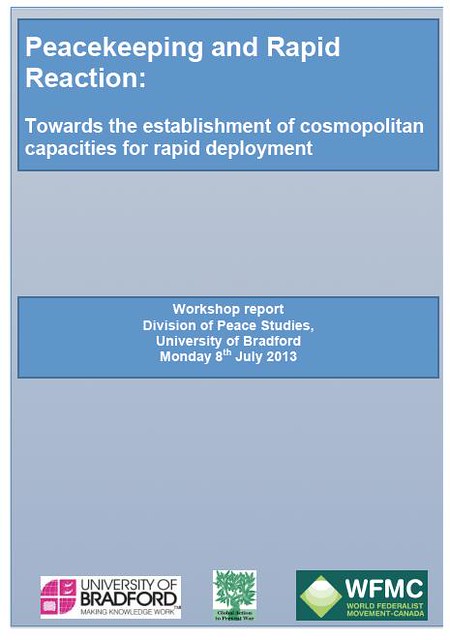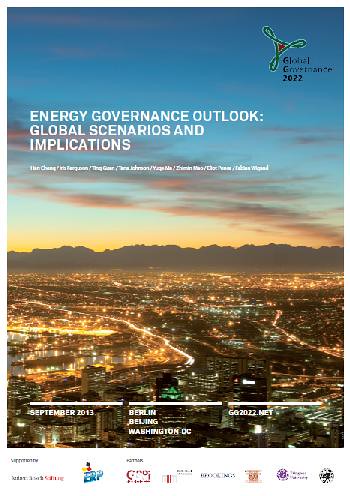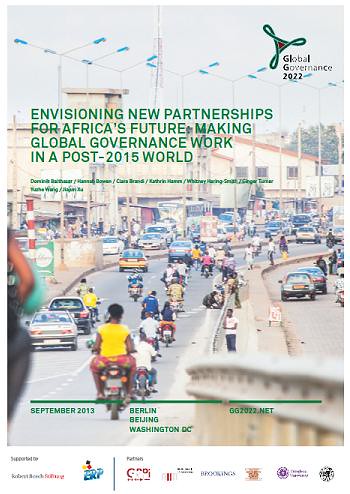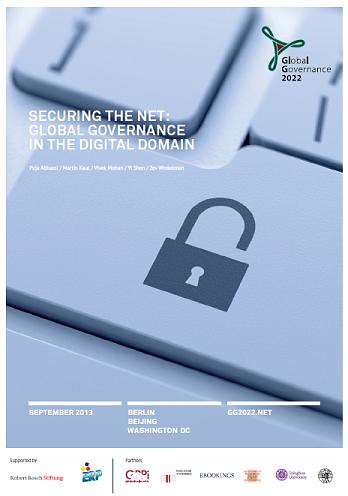'Global Policy Responses' showcase and debate cutting-edge reports from the world's most influential academic, governmental, non-governmental and private sector organisations. Based on new research or innovative arguments, reports are reviewed, discussed and debated by leading academics and practitioners working in associated fields. The results of these exchanges are disseminated among the website's international readership with the aim of encouraging new ideas and innovative policy solutions to the crucial global challenges animating our times.
Global Policy welcomes reports and reviews from organisations, academics and practitioners as long as the reports are freely accessible. To discuss your contribution please email Journal [at] global-policy.com.
Responses and Reports
The Division of Peace Studies at the University of Bradford - October 2013
Peacekeeping and Rapid Reaction: Towards the establishment of cosmopolitan capacities for rapid deployment
by David Curran, Melina Lito, Jonathan Gilmore and Catherine Jones
The Division of Peace Studies at the University of Bradford hosted a workshop on 8th July 2013 supported by Global Action to Prevent War and Armed Conflict (GAPW), and the World Federalist Movement Canada, titled "Peacekeeping and Rapid Reaction: Towards the establishment of cosmopolitan capacities for rapid deployment." The workshop had two main goals. Firstly to chart the theoretical and practical development of peacekeeping operations, incorporating cosmopolitan approaches to international conflict resolution; secondly, to analyse the role of standing, rapid reaction peacekeeping capacities (at national and international levels) as suitable tools for governments, regional organisations and the United Nations.
This report outlines policy considerations which were evident during the discussions. A key theme emergent in the workshop was the requirement for dialogue over a number of areas – such dialogue would focus not just on where current capacities are short, but would also interrogate a range of possible ‘answers’ to capacity challenges. Please click the above image to download the full report.
Response by Robin Collins: Shouldn’t UNEPS Advocacy be Front and Centre?
Response by Annie Hero: The UNEPS Proposal: A Novel Contribution to an Important Campaign?
GG2022 - September 2013
Energy Governance Outlook: Global Scenarios and Implications
by GG2022 Global Energy Governance Working Group
Envisioning New Partnerships For Africa’s Future: Making Global Governance Work in a Post-2015 World
by GG2022 Global Development Governance Working Group
Securing the Net: Global Governance in the Digital Domain
by GG2022 Global Cyber Security Governance Working Group
These reports represents the final outputs of the Global Governance 2022 program (known as GG2022). Over the course of almost nine months in 2012-2013, the program comprised of three dialogue sessions in Berlin (26-30 August 2012), Beijing (7-11 January 2013) and Washington, DC (5-9 May 2013). It brought together 24 young leaders from China, Germany and the United States – the GG2022 fellows. Over the course of the program, the fellows forged cross-cultural networks and, using the intellectual instruments in the field of future research, devised scenarios for the future of international institutions in the three areas of cyber security, development and energy governance. They were encouraged to combine their insights on possible future developments with their normative convictions about the shape and role of global governance in order to create a shared vision of the future system of global governance. To download the full reports please click the above images.
Responses forthcoming.
World Bank - June 2013
The Pirates of Somalia: Ending the Threat, Rebuilding a Nation
by Quy-Toan Do, Jean-Baptiste Blanc, Aurélien Kruse, Trung Dang Le, Andrei A. Levchenko, Lin Ma, Farley Mesko, Claudia Ruiz, and Anja Shortland
The global fight against piracy in Somalia has centered on prosecuting pirates and mobilizing naval forces. But to get to the root cause of the problem, the international community must focus on helping the nation build a functional political system, according to a new World Bank study. “Piracy is a symptom of the breakdown of Somalia’s political system,” says Quy-Toan Do, a senior economist in the Bank’s research department and lead author of the report. “Go after the system, not just the pirates.” Thus, to end piracy off the Horn of Africa, the study urges a paradigm shift away from perpetrators and toward the enablers of piracy. With a limited number of suitable coastal areas available to anchor hijacked ships, piracy would be less profitable if Somalia removes access to safe anchorage points or significantly raises the price for coastal access. In addition, the central government can offer incentives – along with built-in monitoring mechanisms – to encourage local stakeholders to stop pirate activity and learn from the success and failure of Afghanistan’s policies targeting opium poppy production and Colombia’s against coca production. At the heart of this policy agenda lies the need to better understand the political economy of resource sharing, so that winners and losers are properly identified and compensated. The lessons from the study go beyond piracy eradication and speak to the fundamental issue of state building in Somalia.
Response by Currun Singh: Too soon to celebrate? Somali piracy will likely resurface
McKinsey Global Institute - March 2013
Financial globalization: Retreat or reset?
by Susan Lund, Toos Daruvala, Richard Dobbs, Philipp Härle, Ju-Hon Kwek, and Ricardo Falcón
For three decades, the globalization of finance appeared to be an unstoppable trend: as the world economy became more tightly integrated, new technology and access to new markets propelled cross-border capital flows to unprecedented heights. But the financial crisis brought that era of rapid growth to a halt. Drawing on our proprietary database of financial assets in 183 countries, Financial globalization: Retreat or reset? continues the McKinsey Global Institute’s ongoing series of reports on global capital markets. More than four and a half years after the financial crisis began, we find that recovery has barely started, despite a rebound in some major equity indexes. Growth in financial assets has stalled, while cross-border capital flows remain more than 60 percent below their 2007 peak. Some of the shifts under way represent a healthy correction of the excesses of the bubble years—but continued retrenchment could damage long-term economic growth.
Response by Susan Lund: Global Policy's Karl Muth poses questions to Susan Lund, one of the report’s co-authors and director of research for the McKinsey Global Institute.
Hertie School of Governance - February 2013
The Governance Report 2013
by Helmut K. Anheier, Inge Kaul, William Roberts Clark, Mark Copelovitch, Mark Hallerberg, Lucia Quaglia, Stefanie Walter, Sabrina Korreck, Piero Stanig and Mark Kayser,
The main idea underlying The Governance Report is that the conditions of public policymaking have changed—and continue to change—as a result of a greater openness of national borders, a growing volume of cross-border economic activity, deepening policy interdependence among countries, more risks and more competition not only among firms but also states, increased public/private partnering, a strengthened role of civil society, and last but not least, major shifts in global power relations. Given these new realities, the Report's authors focus on the institutional changes and innovations that state and non-state actors have adopted or could adopt in response to the structural shifts that have been occurring and are likely to become even more pronounced and entrenched in the future. Put differently, the Report does not deal mainly with the technical aspects of today’s policy challenges (e.g. issues such as what might be the best technology to reduce greenhouse gases); rather, it uses such policy challenges as a lens through which to explore how different actor groups have adjusted and could adjust to the new types of challenges brought about by the new policymaking realities.
Response by Howard Davis: Revisiting concepts, creating indicators and regulating burgers
Response by Cédric Dupont: Governance Under Policy Interdependence: Measuring Performance and Stimulating Innovation
Response by Rolf Alter: Public Governance: All about solving public problems or something more?
Response by Kate Macdonald: The Politics of Governance Transformation: A good news story?







